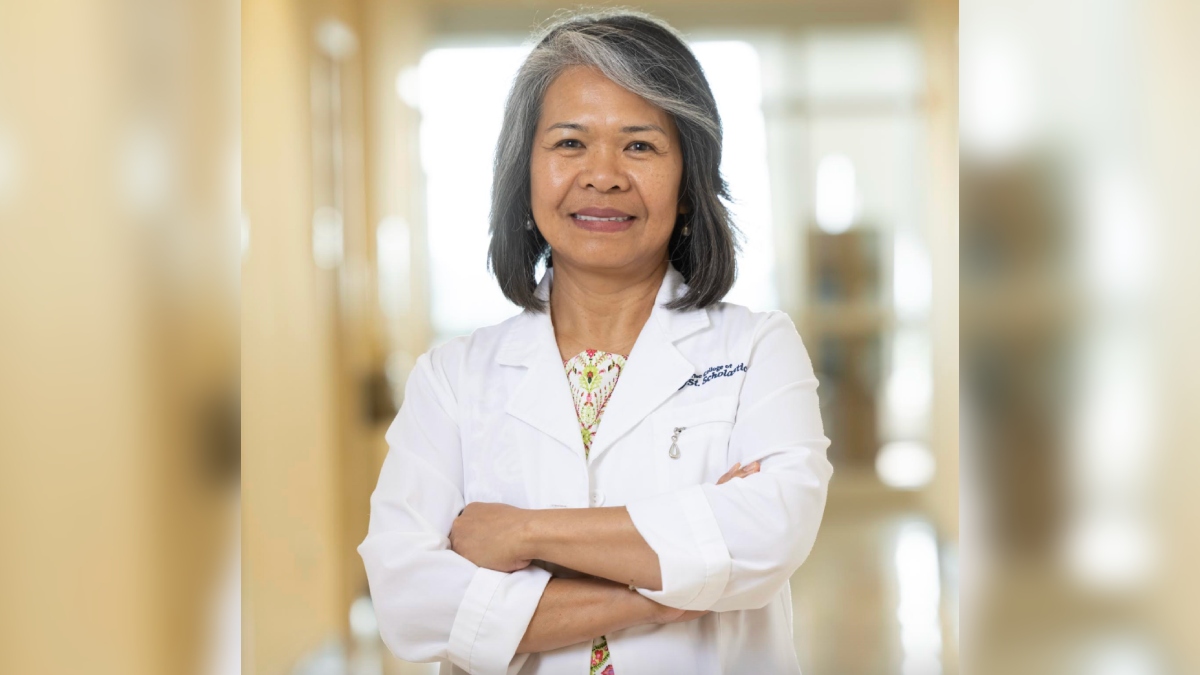What if global health education isn’t only about crossing borders, but also about building bridges? What if the most lasting lessons came not just from lectures, but from listening—deeply, humbly, across cultures? In a time when healthcare and cultural understanding are more intertwined than ever, Dr. Gina Diaz quietly leads by example.
As an educator, nurse, and advocate for transcultural learning, Dr. Diaz has spent over two decades shaping a generation of nurses to lead with both competence and compassion—locally and globally. Her influence as an Associate Professor at The College of St. Scholastica stretches far beyond the classroom, reaching international students and healthcare providers alike through her pioneering work in global nursing education.
Dr. Diaz has not only shaped the minds of future nurses but has also fostered global connections that have enriched both her students and the communities they serve. Her passion for transcultural nursing and geriatric care is reflected in the innovative programs she leads, including the International Capstone Experience in the Philippines—an immersive learning opportunity that deepens students’ understanding of global health challenges and the vital role nurses play in underserved areas.
A path defined by compassion and commitment to global health
Dr. Diaz’s journey into nursing education was driven by a deep-rooted belief in the transformative power of knowledge. “My inspiration for pursuing a career in nursing education and global clinical engagement stems from a belief that knowledge elevates health outcomes not just locally, but globally,” she shares. Her early clinical experiences, particularly her immersion in the underserved areas of Tondo, Manila, opened her eyes to the profound disparities in healthcare access. That experience ignited a passion to not just provide care but to educate others, thus multiplying her impact through future generations of nurses.
Her work has taken her beyond the classroom, where she has collaborated with international healthcare institutions to foster mutual learning and share knowledge across borders. These experiences have instilled in her a deep commitment to capacity-building through education, creating stronger healthcare systems and fostering cross-cultural collaboration.
Influence of Filipino values on teaching and leadership
Dr. Diaz’s Filipino heritage plays a pivotal role in shaping her teaching and mentoring philosophy. Rooted in core Filipino values such as pakikipagkapwa (shared humanity), bayanihan (community spirit), and utang na loob (deep gratitude and reciprocity), she strives to cultivate an inclusive and empathetic learning environment. “I aim to build relationships grounded in trust and compassion, just as Filipino culture prioritizes familial and communal bonds,” she explains.
Her approach to leadership in the academe is similarly shaped by the concept of kagalingan (excellence and effort), encouraging students to strive for growth while honoring their unique strengths and backgrounds. Dr. Diaz fosters an environment where students can learn not just clinical skills but also the importance of cultural humility and the significance of relationships in nursing practice.
When it comes to mentoring, Dr. Diaz draws from the Filipino concept of pakikipagkapwa (cooperation with seeing oneself in others), viewing mentorship as a two-way relationship where growth is mutual. She listens closely, offers guidance, and celebrates her mentees’ successes as if they were her own.
Reflections from the Philippines Capstone Clinical Experience
In recent years, Dr. Diaz’s commitment to global health education has been exemplified through the International Capstone Experience in the Philippines. This program has allowed her students to witness the complexities of healthcare in resource-limited settings firsthand, offering them a unique opportunity to connect with Filipino communities while enhancing their clinical competencies.
“For my students, the trip is not just about clinical skills,” Dr. Diaz reflects. “It’s about cultural humility, global awareness, and social responsibility.” By collaborating with local healthcare providers, learning from traditional practices, and navigating healthcare systems with limited resources, students learn to see patients as individuals shaped by their unique environments and histories. It’s an education that goes beyond textbooks, creating lifelong, transformative experiences for both students and host institutions.
Dr. Diaz also shares the profound impact this experience has had on her students, stating that many are struck by the warmth and hospitality of the Filipino people, juxtaposed with the socio-economic challenges they encounter. These experiences encourage students to reflect on global inequality, resilience, and the power of solidarity across borders.
A tribute to family and a legacy of service
Dr. Diaz’s professional journey is also deeply rooted in the values instilled by her family. As a Filipino immigrant, she was taught to view education not only as a personal achievement but as a responsibility to give back to others. “My mother devoted over four decades to teaching elementary school, and her unwavering work ethic, humility, and resilience have deeply influenced my professional values,” she shares.
Her family’s sacrifices have kept her grounded and dedicated to the service of others. Dr. Diaz continues to honor their legacy by mentoring students and building community partnerships, guiding the next generation of nurses with the same values of care, community, and service that shaped her own path.
A message to Filipino nurse educators and future global health leaders
As Dr. Diaz looks ahead, she offers words of encouragement to fellow Filipino nurse educators and aspiring global health leaders. “We carry with us a legacy of strength, resilience, and compassion,” she says. “We lead with heart. We embody the spirit of bayanihan, understanding that leadership need not be loud or hierarchical—it can be quiet, steady, and deeply relational.”
Dr. Diaz urges Filipino nurse educators to trust their instincts, honor their heritage, and lead with authenticity. Despite underrepresentation in global health leadership, she encourages her peers to redefine leadership on their own terms and with their unique values, ensuring that their presence and voices are essential to shaping the future of healthcare.






